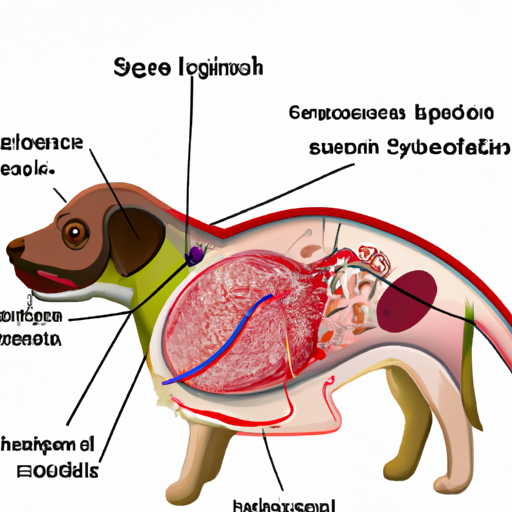Introduction
In your journey as a caregiver to your canine companion, you’ve likely found yourself wondering about the inner workings of their body. One organ that often goes unnoticed but plays a crucial role in your dog’s health is the spleen.
The Function of the Spleen
The spleen in dogs, much like in humans, is a multifunctional organ. Its primary roles include:
- Filtration of the blood
- Production and storage of red blood cells
- Formation of antibodies and lymphocytes, key components of the immune system
Imagine it as a small, diligent factory working round the clock to keep your dog’s health in check.
Why is the Spleen Important?
The spleen’s functions are indeed vital, but why exactly is it so important for your dog?
-
Blood Filtration: The spleen filters out old, damaged red blood cells, and recycles the iron contained within them. This process ensures that your dog’s bloodstream is always filled with healthy, functional cells.
-
Red Blood Cell Production: In times of severe blood loss, the spleen can release stored red blood cells into the bloodstream. This function is like a built-in emergency response system for your dog.
-
Immune Response: The spleen helps your dog fight off infections by producing white blood cells known as lymphocytes. These cells are the soldiers on the front line when your dog’s body is invaded by harmful bacteria or viruses.
Common Spleen Conditions in Dogs
Unfortunately, the spleen is susceptible to numerous conditions. Here are the three most common:
| Condition | Description |
|---|---|
| Splenomegaly | An enlarged spleen, often due to infections or tumors. |
| Splenic Torsion | A life-threatening condition where the spleen twists on its axis. |
| Splenic Tumors | Cancerous growths on the spleen, which can be benign or malignant. |
Frequently Asked Questions (FAQs)
Q: Can a dog live without a spleen?
A: Yes, dogs can live without a spleen. If necessary, vets can perform a splenectomy, or spleen removal surgery.
Q: How can I keep my dog’s spleen healthy?
A: Regular vet check-ups, a balanced diet, and sufficient exercise can help keep your dog’s spleen and overall health in good condition.
Q: What are the symptoms of spleen issues in dogs?
A: Symptoms can include lethargy, loss of appetite, bloating, and pale gums. Always consult with a vet if you notice any changes.
In conclusion, as you continue your journey as a caregiver, remember that every part of your dog’s body plays a role in their health and happiness, even the often-overlooked spleen.



